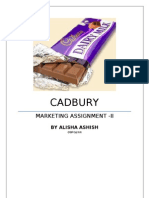H J Cadbury
- Henry Joel Cadbury (December 1, 1883 – October 7, 1974) was an American biblical scholar, Quaker historian, writer, and non-profit administrator.
- We offer a wide range of materials from a number of industry leading suppliers. Our Logistics and Support teams will help ensure that all of these different products arrive when you want them, in as few or as many shipments as you prefer.
Immortality of the soul or resurrection of the dead? Cullmann.-Immortality and resurrection in the philosophy of the Church Fathers, by H.A. Wolfson.-The Greek ideas of immortality, by W. Jaeger.-Intimations of immortality in the thought of Jesus, by H.J. 7 305 Heinz (H J) US 14,539.7 9,430.4 8 311 Cadbury Schweppes UK 14,202.0 7,898.8 9 325 Kellogg US 13,685.9 8,853.3 10 347 Conagra Foods US 13,026.8 27,194.2 Source:Financial Times FT500 (2002). The situation among retailers is changing particularly rapidly. In the period 1993-9.
Photo from American Friends Service Committee archives. | |
| Born | 1 December 1883 |
|---|---|
| Died | 7 October 1974 Bryn Mawr, Pennsylvania, US |
| Alma mater | Haverford College Harvard University |
| Awards | Nobel Peace Prize (on behalf of the American Friends Service Committee) |
| Scientific career | |
| Fields | New Testament History of Christianity |
| Institutions | Haverford College Andover Theological Seminary Bryn Mawr College Harvard Divinity School |
Henry Joel Cadbury (December 1, 1883 – October 7, 1974) was an American biblical scholar, Quaker historian, writer, and non-profit administrator.
Life[edit]

A graduate of Haverford College, Cadbury was a Quaker throughout his life, as well as an agnostic.[1] Forced out of his teaching position at Haverford for writing an anti-war letter to the Philadelphia Public Ledger, in 1918, he saw the experience as a milestone, leading him to larger service beyond his Orthodox Religious Society of Friends. He was offered a position in the Divinity School at Harvard University, from which he had received his Ph.D, but he first rejected its teacher's oath for reasons of conscience, the Quaker insistence on telling the truth, and as a form of social activism. He later accepted the Hollis Professorship of Divinity (1934–1954). He also was the director of the Andover-Harvard Theological Library (1938–1954), and chairman (1928–1934; 1944–1960) of the American Friends Service Committee, which he had helped found in 1917. He delivered the Nobel lecture on behalf of the AFSC when it, together with the British Friends Service Council, accepted the Nobel Peace Prize in 1947 on behalf of the Religious Society of Friends.[2] He was also awarded an honorary Doctor of Laws (LL. D.) degree from Whittier College in 1951.[3]
H J Cadbury Products
Controversial remarks[edit]
In 1934, Cadbury encouraged Jews to engage Nazis with good will, according to The New York Times, which characterized his stance as, 'Good will, not hate or reprisals, will end, or offset, the evils of Hitler government's persecution of Jews.'[4] The suggestion was repudiated by the rabbis he made it to, led by Stephen S. Wise.[5]
Select works[edit]
Thesis[edit]


- Cadbury, Henry J. (1919). The Style and Literary Method of Luke: Appendix to part III. Some inferences as to the detection of sources (Ph.D.). Cambridge, MA: Harvard University Press. OCLC17893716.
Books[edit]
- ——— (1920). National Ideals in the Old Testament. New York: Scribner’s. OCLC3672266.
- ——— (1927). The Making of Luke-Acts. New York: MacMillan. OCLC2709946.
- ——— (1937). The Peril of Modernizing Jesus. Lowell Institute lectures 1935. New York: MacMillan. OCLC2697178.
- ——— (1947). Jesus: What Manner of Man. Shaffer lectures, 1946. New York: MacMillan. OCLC646147.
- ——— (1955). The Book of Acts in History. Lowell Institute lectures, 1953. London: A. & C. Black. OCLC759775493.
- ——— (1957). Quakerism and Early Christianity. Swarthmore lecture, 1957. London: George Allen & Unwin. OCLC1139773.
- ——— (1964). The Eclipse of the Historical Jesus. Pendle Hill Pamphlet. 133. Wallingford, P: Pendle Hill Publications. OCLC1303599.
- ——— (1971). John Woolman in England: A Documentary Supplement. Supplement ... to the Journal of the Friends Historical Society. 31. London: Friends Historical Society. OCLC548894.
Edited by[edit]
- ———, ed. (1948). George Fox's Book of Miracles. Cambridge, MA: University Press. OCLC867954049.
- ———, ed. (1972). Narrative Papers of George Fox. Richmond, IN: Friends United Press. ISBN9780913408063. OCLC481263.
Journal articles[edit]
- ——— (March–June 1918). 'The basis of early Christian antimilitarism'. Journal of Biblical Literature. 37 (1–2): 66–94. doi:10.2307/3259147. hdl:2027/hvd.hwrn93. JSTOR3259147.
- ——— (1922). 'The Knowledge Claimed in Luke's Preface'. The Expositor. 24: 401–420.
- ——— (1923). 'The relative pronouns in Acts and elsewhere'. Journal of Biblical Literature. 42 (3–4): 150–157. doi:10.2307/3259088. JSTOR3259088.
- ——— (1925). 'Lexical notes on Luke-Acts. I'. Journal of Biblical Literature. 44 (3–4): 214–227. doi:10.2307/3260253. JSTOR3260253.
- ——— (1926). 'Lexical notes on Luke-Acts. II, Recent arguments for medical language'. Journal of Biblical Literature. 45 (1–2): 190–209. doi:10.2307/3260178. JSTOR3260178.
- ——— (1926). 'Lexical notes on Luke-Acts. III, Luke's interest in lodging'. Journal of Biblical Literature. 45 (3–4): 305–322. doi:10.2307/3260084. JSTOR3260084.
- ——— (1928). 'The odor of the spirit at Pentecost'. Journal of Biblical Literature. 47 (3–4): 237–256. doi:10.2307/3259582. JSTOR3259582.
- ——— (1929). 'Lexical notes on Luke-Acts. 4, On direct quotation, with some uses of oti and ei'. Journal of Biblical Literature. 48 (3–4): 412–425. doi:10.2307/3259738. JSTOR3259738.
- ——— (1931). 'Erastus of Corinth'. Journal of Biblical Literature. 50 (2): 42–58. doi:10.2307/3259559. JSTOR3259559.
- ——— (1933). 'Lexical notes on Luke-Acts. 5, Luke and the horse-doctors'. Journal of Biblical Literature. 52 (1): 55–65. doi:10.2307/3259479. JSTOR3259479.
- ——— (1934). 'The Macellum of Corinth'. Journal of Biblical Literature. 53 (2): 134–141. doi:10.2307/3259880. JSTOR3259880.
- ——— (1937). 'Motives of biblical scholarship'. Journal of Biblical Literature. 56 (1): 1–16. doi:10.2307/3259625. JSTOR3259625.
- ——— (1939). 'The meaning of John 20:23, Matthew 16:19, and Matthew 18:18'. Journal of Biblical Literature. 58 (3): 251–254. doi:10.2307/3259489. JSTOR3259489.
- ——— (December 1962). 'A proper name for Dives'. Journal of Biblical Literature. 81 (4): 399–402. doi:10.2307/3265096. JSTOR3265096.
- ——— (September 1963). 'Some Lukan expressions of time'. Journal of Biblical Literature. 82 (3): 272–278. doi:10.2307/3264629. JSTOR3264629.
- ——— (June 1964). 'Gospel study and our image of early Christianity'. Journal of Biblical Literature. 83 (2): 139–145. doi:10.2307/3264524. JSTOR3264524.
- ——— (March 1965). 'Name for Dives'. Journal of Biblical Literature. 84 (1): 73. doi:10.2307/3264075. JSTOR3264075.
References[edit]
- ^'My Personal Religion', lecture given to Harvard divinity students in 1936.
- ^Duncan, Lucy (August 15, 2018). 'Civility Can Be Dangerous'. Friends Journal.
- ^'Honorary Degrees Whittier College'. www.whittier.edu. Retrieved December 6, 2019.
- ^'Urges Good Will By Jews For Nazis'. The New York Times. New York City: New York Times Company. June 14, 1934. Retrieved June 29, 2018.
- ^'Good Will Barred to Nazis by Rabbis; Wise Leads Wave of Objection to Advice by Cadbury, of Society of Friends'. The New York Times. New York City: New York Times Company. June 16, 1934. Retrieved July 10, 2019.
H J Cadbury Company
- Bacon, Margaret H., Let This Life Speak: The Legacy of Henry Joel Cadbury. U of Pennsylvania P, 1987. ISBN0-8122-8045-8.
External links[edit]
H J Cadbury Logo
- Henry Joel Cadbury Papers from Swarthmore College Peace Collection